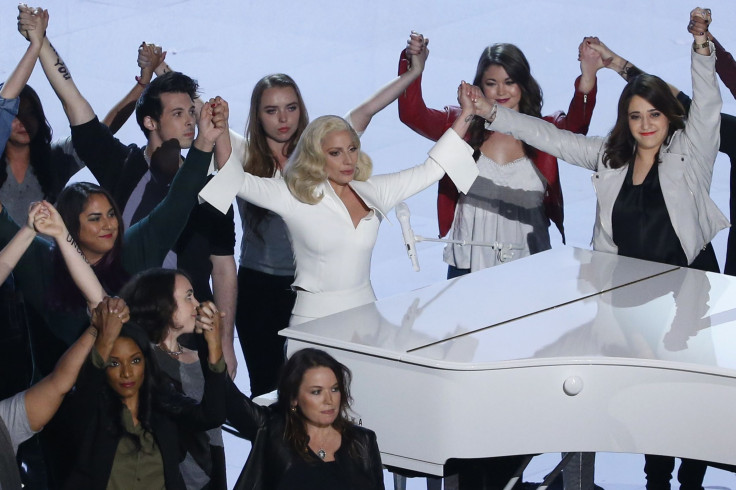International Women’s Day 2016: 4 incidents this year that show how far we have to go to reach gender parity

Empowerment and unity were the talk of breakfasts across the nation this morning as Australian women -- and men -- commemorated International Women’s Day (IWD), a day dedicated to celebrating women and their achievements.
However, as IWD organisers themselves recognise, there is still a lot of work to be done to achieve global gender parity and reach the UN’s goal of a ‘Planet 50-50’ in gender equality by 2030.
Here are four incidents and realisations from just the first two months of this year -- from being stereotyped by emojis to receiving death threats for breastfeeding in public -- that show how far we still have to go.
1 | The Fear of 'Feminism'
The 1970’s suffragette, marching with her sisters with a poster held high, is what many associate with ‘feminism’. But for some, the term comes along with the idea that men are on the opposing team, and that all feminist acts or statements are “man-hating”. This troublesome definition has seen many women reject the idea of feminism, including it seems, Australian Minister for Women Michaelia Cash.
Cash rejected identifying herself as a feminist while appearing on ABC’s Q and A program, which took place on Monday, the eve of International Women’s Day. Following her surprising statement, the shock only continued when shock jock Alan Jones admitted he saw himself as a feminist. Fellow feminist panellists Mia Freedman and Senator Penny Wong responded to Cash with confusion.
#ICYMI "I don't label myself" says @SenatorCash. @MiaFreedman responds. Alan Jones identifies as a feminist #QandA https://t.co/86v9LZ77dY
— ABC Q&A (@QandA) March 8, 2016
“It troubles me that Alan Jones is willing to label himself a feminist, but our minister for women isn’t,” said Freedman.
2 | Unseen Stereotypes
The representation of women has been a consistent topic of discussion, but Always, a company that produces female sanitary products, decided to ramp up the debate for 2016 International Women’s Day. In a new campaign, Always shows that stereotyping can be present in even the smallest of ways, including the little faces in our phones that often speak for us when words just can’t.
Emojis have moved towards diversity and LGBT acceptance, but the progression regarding female roles however seems to have been forgotten. You’ll notice brides and girls fussing over their hair and nails. You’ll notice male doctors and athletes. You won’t notice noteable professions or athletes with feminine traits, because they aren’t available.
Always presented their campaign using emojis to add a fresh perspective to the conversation surrounding the stereotyping and representation of women.
"It was so interesting to hear these girls talk about emojis and realise how the options available to them are subtly reinforcing the societal stereotypes and limitations they face every day,” director, Lucy Walker said.
3 | Being Shamed For Calling Out Sexual Assault
The beginning of the year saw a US judge rule that singer Kesha could not terminate her contract with Sony, despite her allegations that she had been sexually assaulted by Sony producer Dr. Luke.
Kesha’s girl pals rallied with her, from Taylor Swift’s donation to Lady Gaga’s interview with Carson Daly, where she shared that standing behind Kesha was important to her, partly because of her own sexual assault experiences.
However, Lady Gaga also reminded the public that Kesha’s allegations were not uncommon within the industry.
“The truth is, I feel like she’s being very publicly shamed for something that happens in the music industry all the time, to women and men,” Lady Gaga said.
4 | Breastfeeding in Public
An Ohio mother, Ellen Bradford, was left with hate mail and death threats after being photographed at a US presidential campaign rally in Cleveland for Bernie Sanders breastfeeding her baby.
The image went viral on the internet
“A hungry baby is a hungry baby,” Bradford told ABC News Cleveland. “There is no, ‘I’m feeding you in 10 minutes.’ It’s, ‘I’m feeding you right here, right now, or you’re screaming.’”
Sanders responded using twitter, the same tool that caused such animosity.
As a society, we should never stigmatize women for breastfeeding in public. https://t.co/I08wzGrdWH
— Bernie Sanders (@BernieSanders) March 3, 2016
Following this incident, hashtags began through social media providing support for Bradford, including #feelthebern and #boobsforbernie.





















